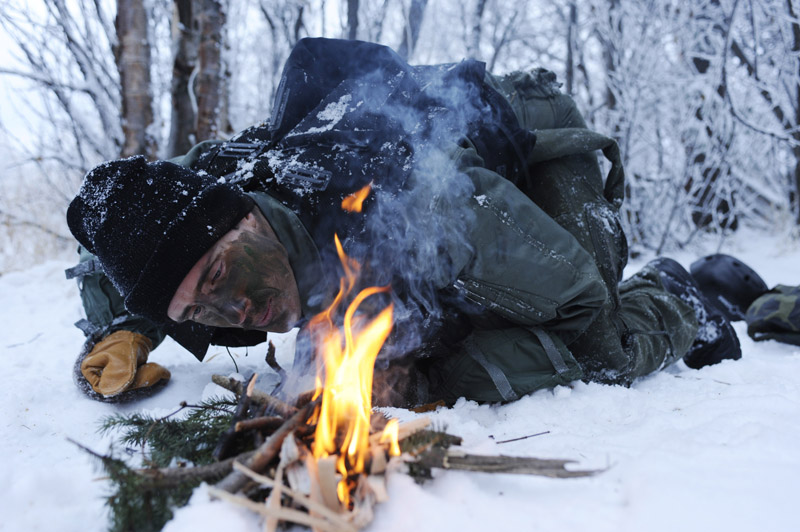Maintain normal body temperature!
Kathmandu
People are still homeless living in make shift tents because of April 25 earthquake. And snowfall, cold weather, lack of blankets and warm clothes are adding to their woes. Their struggle will increase if the body temperature isn’t maintained. As the mercury drops, it becomes difficult for the human body to maintain the body temperature resulting in hypothermia.
Hypothermia is a condition where the body starts losing its normal temperature. The normal body temperature is 36.5 to 37.5 degree Celsius. When the body temperature starts declining below 35 degree Celsius then this condition is termed as hypothermia. “If the temperature is ranged less than 35 to 32 degree Celsius then it is mild hypothermia. If the range is below 32 to 28 degree Celsius then it is moderate hypothermia and if the body temperature is less than 28 degree Celsius then the hypothermia is severe,” explained Dr Kamal Raj Thapa, Physician and Assistant Professor at Bir Hospital, Kathmandu.
Signs, symptoms
Urgency to urinate starts increasing when one starts losing his/her body temperature. The patient feels cold during the mild form of hypothermia but if the temperature starts to decrease then it is an emergency for the patients. When one starts losing his/her body temperature then s/he will have difficulty in breathing. “This shortness of breath can lead to pulmonary edema in the patients. Pulmonary edema is an extreme shortness of breath,” explained the doctor. Along with the effect on respiratory system it will also have an effect on cardiac system. The heartbeat of the patient starts increasing but as the hypothermia progresses it too starts to decrease, there is an alteration in the heartbeat. Patients can suffer from both tachycardia — racing heartbeat, and bradycardia — a slow heartbeat. Blood pressure too starts to decrease.
The patients are cold to touch and have difficulty in walking. Mumbled speech is also another sigh visible in them. Along with all these, patient’s behaviour starts changing. Gradually the patient starts to become unconscious. Hypothermia will also have an effect on the renal system. “If the body temperature is lowered then the patient’s urine output starts decreasing that leads to stoppage of urine. This condition is known as anuria,” added Dr Thapa.
Exposure to cold
Causes and factors contributing to the development of hypothermia include outdoor exposures. As many people are still living in make shift tents, they must take much needed protection to avoid hypothermia. Having informed that, the doctor added, “There isn’t much risk of hypothermia in people living in Kathmandu, as the temperature hasn’t decreased much. However, those living in mountain region are at risk of hypothermia and frostbite. This is why people must wear warm air proof jackets and clothing to protect themselves from cold.”
Vulnerable ones
Hypothermia can be common in neonatal as their body surface area is more than their weight, so it is comparatively difficult to maintain body temperature for them than adults. This is why neonates must be wrapped in warm clothing. Along with them, elderly (above 65 years of age) are also prone to hypothermia due to their deteriorated thermo regulation mechanism. People lose their body heat when they suffer from thyroid, diabetes and have psychiatric problems.
Alcohol is one of the causes of hypothermia, as people become unable to feel temperature because of the intoxication of the alcohol. “There is a misconception that drinking alcohol will ward off cold. Rather than warding off cold it will make people lose their sense due to which they won’t be able to feel the cold and at such cases if they are exposed to cold temperature then there are chances for hypothermia,” warned the doctor.
Preventive measures
• Wear clothes in layers
• Protect yourself from cold and heat loss
• Do not wear wet clothes. “Patient’s wet clothes should be changed and heaters needs to be turned on to help increase the body temperature.”
• Wear gloves, scarf and caps to avoid heat loss from hands and head
• Drink hot soups and drinks
• Take the patient to the hospital if s/he is unconscious
• Maintain room temperature






